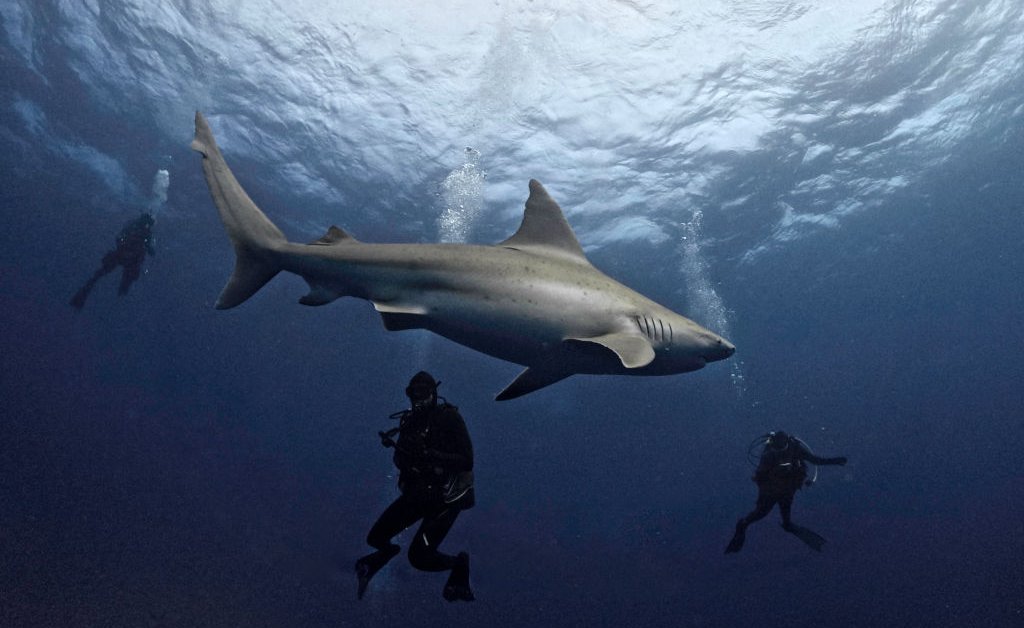From Hollywood To The High Seas: Analyzing The Impact Of Jaws On Shark Populations

Welcome to your ultimate source for breaking news, trending updates, and in-depth stories from around the world. Whether it's politics, technology, entertainment, sports, or lifestyle, we bring you real-time updates that keep you informed and ahead of the curve.
Our team works tirelessly to ensure you never miss a moment. From the latest developments in global events to the most talked-about topics on social media, our news platform is designed to deliver accurate and timely information, all in one place.
Stay in the know and join thousands of readers who trust us for reliable, up-to-date content. Explore our expertly curated articles and dive deeper into the stories that matter to you. Visit Best Website now and be part of the conversation. Don't miss out on the headlines that shape our world!
Table of Contents
From Hollywood to the High Seas: Analyzing the Impact of Jaws on Shark Populations
The summer of 1975 saw the release of Steven Spielberg's Jaws, a cinematic masterpiece that terrorized audiences worldwide and cemented the great white shark's place in popular culture. But the film's impact extended far beyond box office success; it sparked a dramatic and, in many ways, devastating shift in public perception of sharks, significantly impacting global shark populations. This article explores the complex relationship between Jaws, the ensuing "shark frenzy," and the long-term consequences for these magnificent predators.
The Jaws Effect: Fear and Misinformation
Jaws wasn't just a scary movie; it was a cultural phenomenon. Its portrayal of a relentless, man-eating great white instilled a deep-seated fear in the hearts of many, transforming sharks from fascinating creatures of the deep into monstrous killers. This fear, fueled by sensationalized media coverage, led to a widespread and largely unjustified culling of sharks.
-
Increased Shark Killings: Following the film's release, numerous accounts emerged of people actively hunting and killing sharks, often indiscriminately targeting any species resembling the great white. This wasn't limited to professional fishermen; recreational anglers also joined in, driven by a newfound sense of fear and a desire to protect their beaches. The impact on shark populations was immediate and significant.
-
Misinformation and Exaggeration: Jaws contributed to the propagation of many myths surrounding shark behavior and danger. The film's portrayal of a highly intelligent and aggressive shark, relentlessly pursuing humans, grossly exaggerated the actual threat posed by these animals. In reality, shark attacks are relatively rare events, with many factors contributing to their occurrence, .
Long-Term Consequences for Shark Populations
The consequences of the post-Jaws shark frenzy are still being felt today. Many shark populations, already vulnerable due to overfishing and habitat destruction, suffered further declines as a result of the targeted killings.
-
Declining Great White Populations: Great white sharks, already facing threats from fisheries targeting other species, were particularly hard hit. The movie intensified the pressure, contributing to population declines in various regions.
-
Ecosystem Disruption: The removal of apex predators like sharks has cascading effects on marine ecosystems. Sharks play a crucial role in maintaining balance, and their decline can lead to imbalances that affect other species and the overall health of the ocean.
A Shift in Public Perception and Conservation Efforts
In recent decades, there's been a growing awareness of the importance of shark conservation. Scientific research has helped to dispel many of the myths surrounding sharks, highlighting their crucial ecological role and the relative rarity of attacks.
-
Increased Conservation Awareness: Organizations like the and are working tirelessly to protect shark populations through education, research, and advocacy.
-
Sustainable Fisheries Management: Efforts are underway to promote sustainable fishing practices that minimize bycatch (unintentional capture of non-target species) and protect shark populations.
The Legacy of Jaws
Jaws remains a cinematic masterpiece, but its legacy extends beyond the silver screen. It serves as a stark reminder of the power of media to shape public perception and the potentially devastating consequences of fear-mongering and misinformation. While the film's impact on shark populations was undeniably negative, it also sparked a conversation that has, over time, led to a greater understanding and appreciation of these vital marine creatures and the importance of their conservation. The challenge now is to continue building on this progress, ensuring that future generations are educated about the true nature of sharks and committed to their protection.

Thank you for visiting our website, your trusted source for the latest updates and in-depth coverage on From Hollywood To The High Seas: Analyzing The Impact Of Jaws On Shark Populations. We're committed to keeping you informed with timely and accurate information to meet your curiosity and needs.
If you have any questions, suggestions, or feedback, we'd love to hear from you. Your insights are valuable to us and help us improve to serve you better. Feel free to reach out through our contact page.
Don't forget to bookmark our website and check back regularly for the latest headlines and trending topics. See you next time, and thank you for being part of our growing community!
Featured Posts
-
 Zach Bryan Delivers Heartfelt Anthems At Hyde Park Concert Review
Jul 02, 2025
Zach Bryan Delivers Heartfelt Anthems At Hyde Park Concert Review
Jul 02, 2025 -
 Tebas Afirma Nico Gonzalez Inelegible Para El Barca Hoy
Jul 02, 2025
Tebas Afirma Nico Gonzalez Inelegible Para El Barca Hoy
Jul 02, 2025 -
 Athletic Analizando Las Alternativas A Nico Williams En La Banda Derecha
Jul 02, 2025
Athletic Analizando Las Alternativas A Nico Williams En La Banda Derecha
Jul 02, 2025 -
 Imposibilidad De Inscripcion Tebas Descarta A Nico Para El Barca
Jul 02, 2025
Imposibilidad De Inscripcion Tebas Descarta A Nico Para El Barca
Jul 02, 2025 -
 Love Island Usa Season 7 Premiere Date And Complete Viewing Schedule
Jul 02, 2025
Love Island Usa Season 7 Premiere Date And Complete Viewing Schedule
Jul 02, 2025
Latest Posts
-
 Hershey Biopic Unveils First Look At Stars Finn Wittrock And Alexandra Daddario
Jul 03, 2025
Hershey Biopic Unveils First Look At Stars Finn Wittrock And Alexandra Daddario
Jul 03, 2025 -
 Love Island Usa Season 7 Understanding Pepe Garcias Role
Jul 03, 2025
Love Island Usa Season 7 Understanding Pepe Garcias Role
Jul 03, 2025 -
 Call Of Duty Mobiles New Double Cod Points Event Date Rewards Confirmed
Jul 03, 2025
Call Of Duty Mobiles New Double Cod Points Event Date Rewards Confirmed
Jul 03, 2025 -
 Update Vance Boelter Suspected Shooter At Minnesota Capitol Captured
Jul 03, 2025
Update Vance Boelter Suspected Shooter At Minnesota Capitol Captured
Jul 03, 2025 -
 New Photos Released From The Hershey Biopic Filming In W Pa
Jul 03, 2025
New Photos Released From The Hershey Biopic Filming In W Pa
Jul 03, 2025
